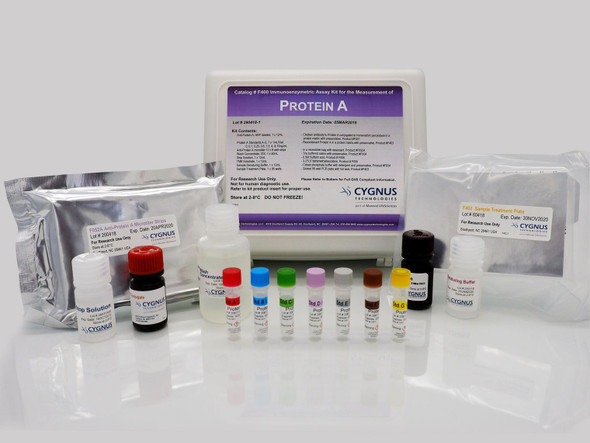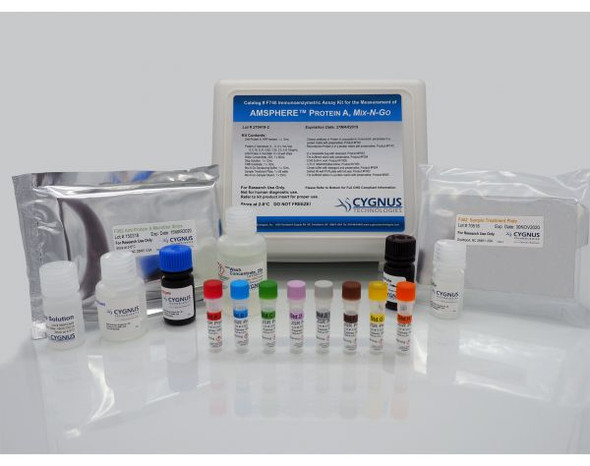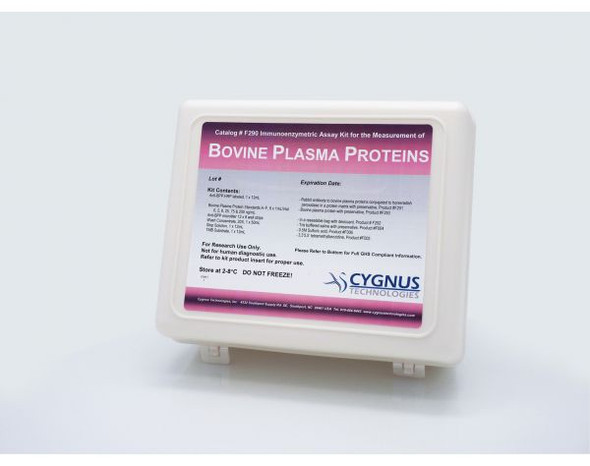Protein A-h ELISA Kit | F050H
- SKU:
- 214-F050H
- Size:
- 1 Kit
- Product Type:
- ELISA Kit
- Storage:
- All kit reagents 2°C to 8°C
- Assay format:
- 96 Well Plate
- Time to result:
- ~3 hrs. 20 min
- LOD:
- 100 pg/mL
- LLOQ:
- ~200 pg/mL
- Recommended Diluent:
- I028
Description
Protein A-h ELISA Kit | F050H
Protein A-h ELISA Kit is intended for use in quantitating Protein A ligands from natural (Staphylococcus aureus) and structurally conserved E.coli recombinant expressed constructs. The kit is for Research and Manufacturing Use Only and is not intended for diagnostic use in humans or animals. Cygnus manufactures three other Protein A detection kits, Cat #s F050, F400, and F400Z. Cat # F050 does not utilize a sample treatment step and as such may not be suitable for all product antibodies due to interference from the product antibody. Protein A ELISA kits Cat # F400 and F400Z incorporate some improvements over the earlier kits and are designed to better detect the newer, unnatural constructs of Protein A such as the MabSelect SuReTM ligand sold by GE Healthcare. The Protein A assay is a two-site immunoenzymetric assay. Samples containing Protein A are first diluted with a sample denaturing buffer. This reagent dissociates the Protein A from the product antibody. Samples are then heated in a dry heating block or boiling water bath to denature and precipitate the product antibodies. The heat-denatured samples are then reacted in microtiter strips coated with a polyclonal antiProtein A capture antibody. A second biotinylated monoclonal anti-Protein A antibody is simultaneously reacted forming a sandwich complex of solid phase antibody- Protein A-biotinylated antibody. After a wash step to remove any unbound reactants, the strips are then reacted with Streptavidin labeled with Alkaline Phosphatase enzyme. This reagent will bind to any of the biotinylated antibody bound to the strip. After another wash step to remove unbound Streptavidin: alkaline phosphatase, the plates are then reacted with pnitrophenyl phosphate (PNPP) substrate. The amount of hydrolyzed substrate is read on a microtiter plate reader and is directly proportional to the concentration of Protein A present. Accurate quantitation is achieved by comparing the signal of unknowns to Protein A standards assayed at the same time.














